Are you frustrated by misleading advertisements that promise more than they deliver? You're not alone; many consumers have experienced the disappointment of being lured in by flashy marketing tactics only to find the products fall short. This raises important questions about accountability and transparency in advertising. Join us as we delve into the steps you can take to formally address these concerns and empower yourself as a consumer.
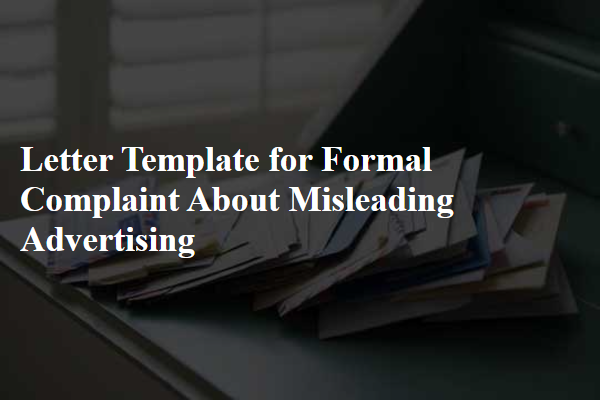
Clear identification of advertised product/service
Misleading advertising practices can severely undermine consumer trust and lead to financial losses. For instance, a recent advertisement for a popular smartphone brand, featuring the Galaxy S21 (launched in January 2021), claimed exceptional camera capabilities that do not align with actual performance. The ad emphasized "professional-grade photography," yet users reported discrepancies in image quality, particularly in low-light conditions, where the advertised night mode fell short. Such discrepancies not only mislead potential buyers but also raise ethical concerns about transparency in promotional content. Consumer protection laws in many countries, including the United States and the European Union, mandate that advertisements accurately represent products to prevent deception and preserve fair trade practices.
Detailed description of misleading claims
Misleading advertising can significantly impact consumer trust and decision-making. For example, a popular weight loss supplement, marketed as clinically proven to help users lose 10 pounds in a week, lacks credible scientific backing and FDA approval. Claims made in social media advertisements often embellish testimonials from individuals, providing unverifiable before-and-after images that create unrealistic expectations. Furthermore, fine print often buried in promotional materials discloses that results may vary, leaving consumers unaware of the actual effectiveness of the product. Such practices can lead to dissatisfaction, loss of money, and potential harm to health when consumers rely on misleading information.
Reference to advertisements or promotions
The recent advertising campaign launched by XYZ Company, particularly the promotion for the Deluxe Widget 3000, has raised significant concerns regarding its representation of product specifications. The advertisements, broadcast on several platforms including television and digital media, claim that the Deluxe Widget 3000 features battery life exceeding 48 hours and a 20% increase in efficiency over previous models. However, upon purchase and thorough testing, consumers discovered that the actual battery life averages only 30 hours, and the efficiency gains were merely 10%. These discrepancies not only mislead potential buyers but also violate the guidelines set forth by the Federal Trade Commission regarding truthful advertising practices. The misleading nature of these advertisements has led to consumer confusion and dissatisfaction, prompting a need for scrutiny and rectification from the company.
Impact on consumer decision-making
Misleading advertising can significantly impact consumer decision-making processes, leading to confusion and dissatisfaction. Instances of exaggerated claims or false information can be observed in various sectors, such as food products, electronics, and pharmaceuticals. For example, a well-known fast-food chain may advertise a burger that appears much larger in promotional images compared to its actual size, prompting customers to feel misled after making a purchase. Similarly, electronics advertisements may showcase performance capabilities that are not reflective of the actual product, creating a gap between consumer expectations and reality. This dissonance not only affects trust in brands but can also result in financial losses for consumers who invest in products based on misleading representations, ultimately undermining informed purchasing decisions.
Request for resolution or corrective action
Misleading advertising often leads consumers to purchase products based on inaccurate information. For instance, a recent advertisement for a popular smartphone, which claimed "unlimited battery life," misrepresented the actual performance metrics. Upon testing, the device only lasts 12 hours under average usage conditions, significantly lower than the advertised claim. Such discrepancies violate the Truth in Advertising laws enforced by the Federal Trade Commission (FTC) in the United States. Consumers, including myself, expect accurate representations that reflect product capabilities, influencing purchasing decisions. To address this issue, I request corrective action, such as an official retraction of misleading advertisements and clear communication regarding the actual battery performance to protect consumers and uphold trust in the brand.
Letter Template For Formal Complaint About Misleading Advertising Samples
Letter template of formal complaint regarding deceptive marketing practices
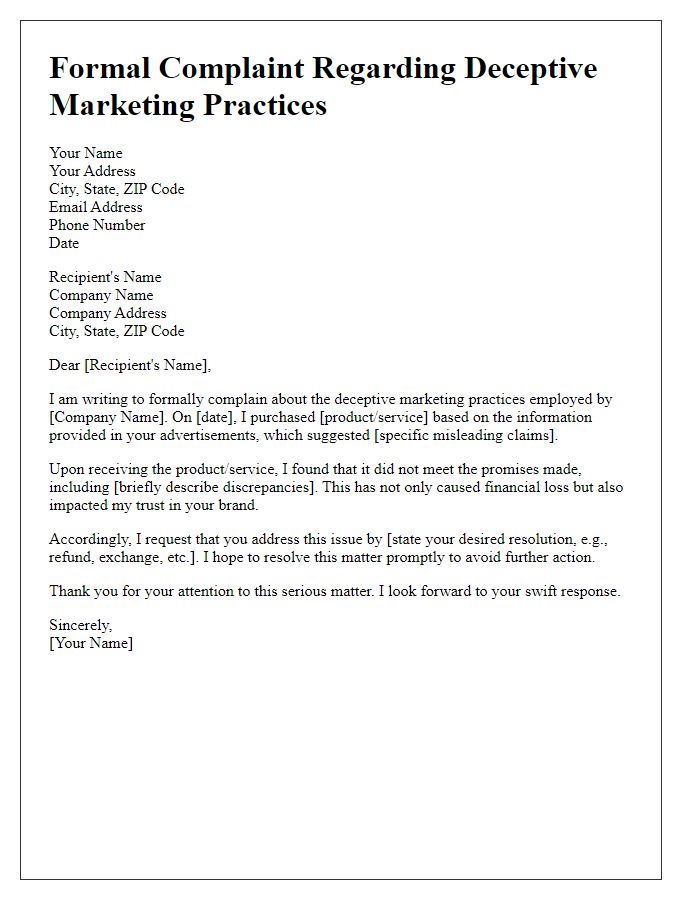
Letter template of formal appeal against fraudulent advertisement tactics
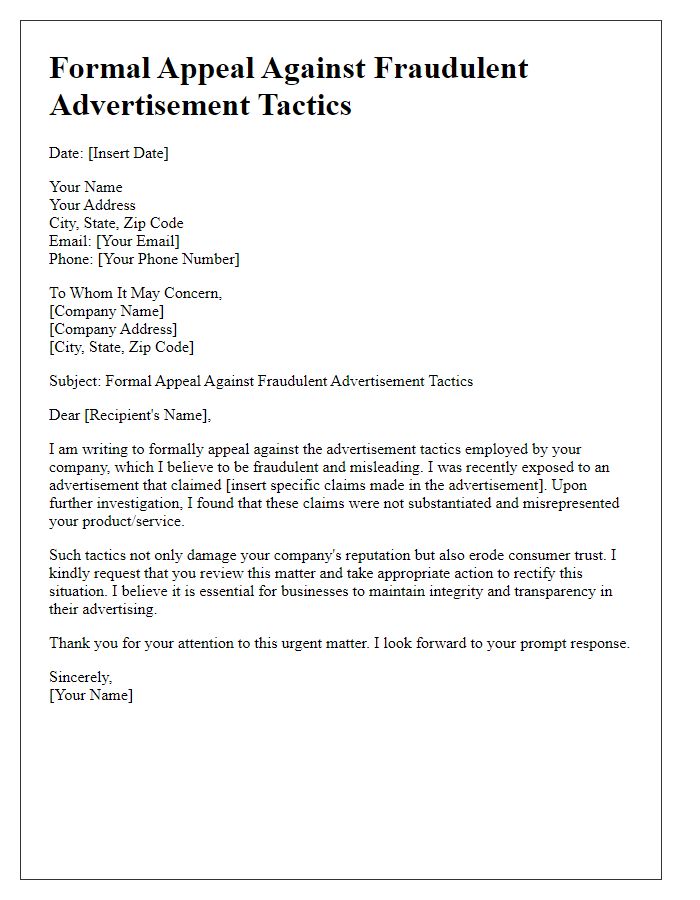
Letter template of dissatisfaction with misleading commercial representations
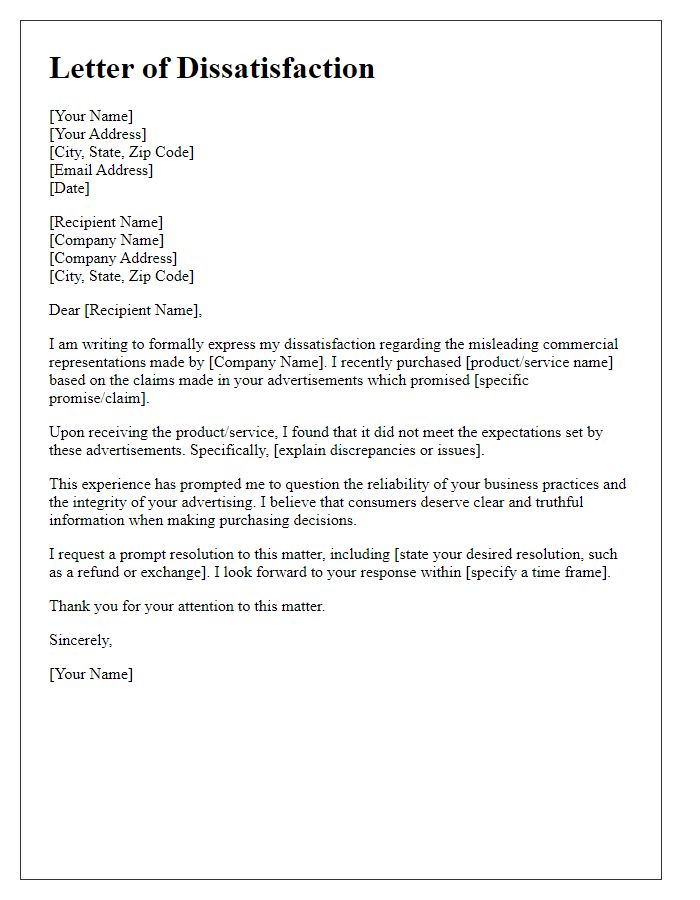
Letter template of concern over inaccurate product information in advertising
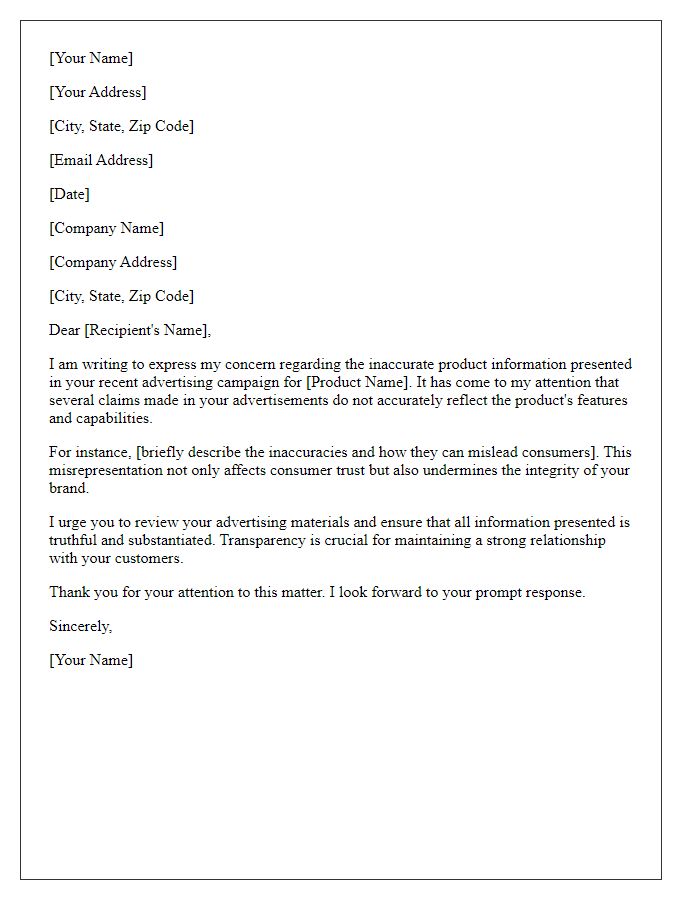

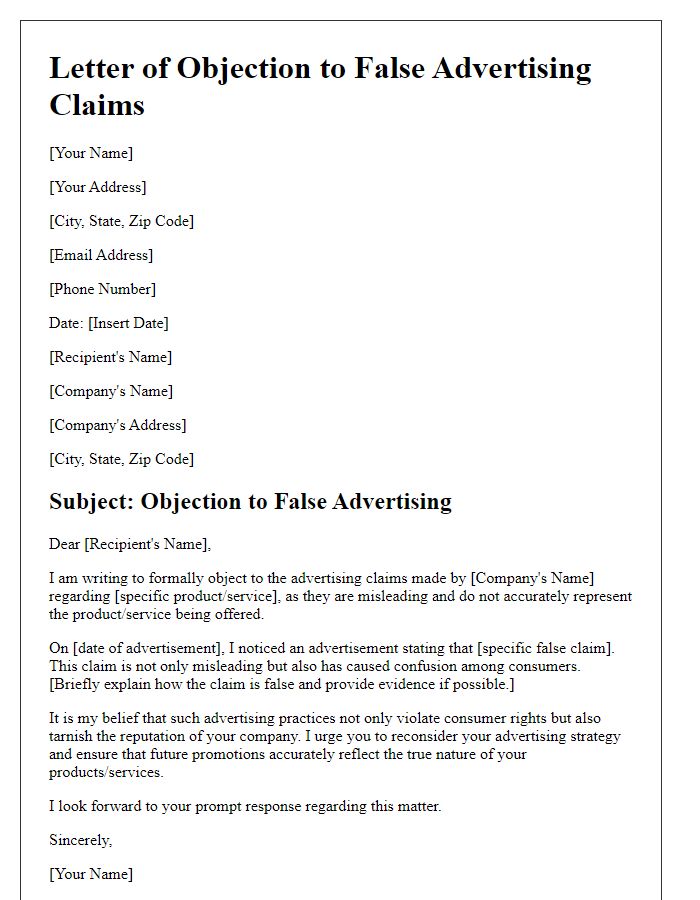
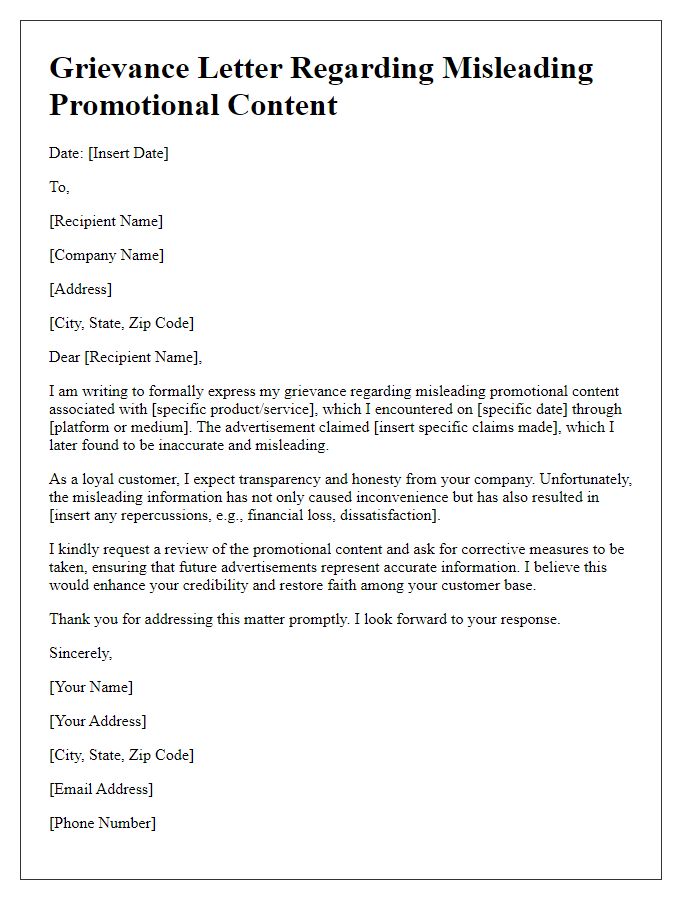
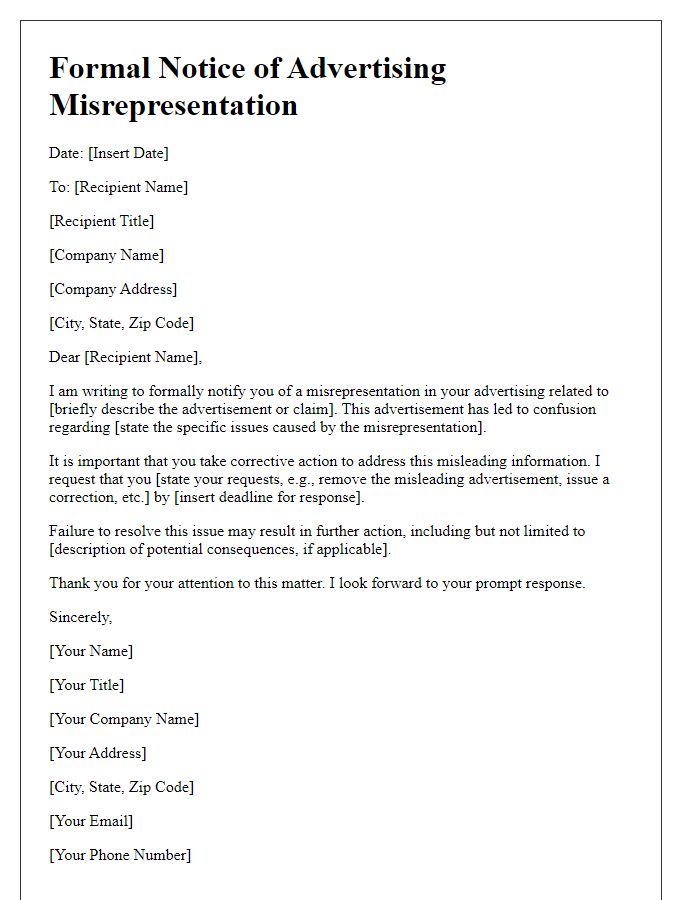
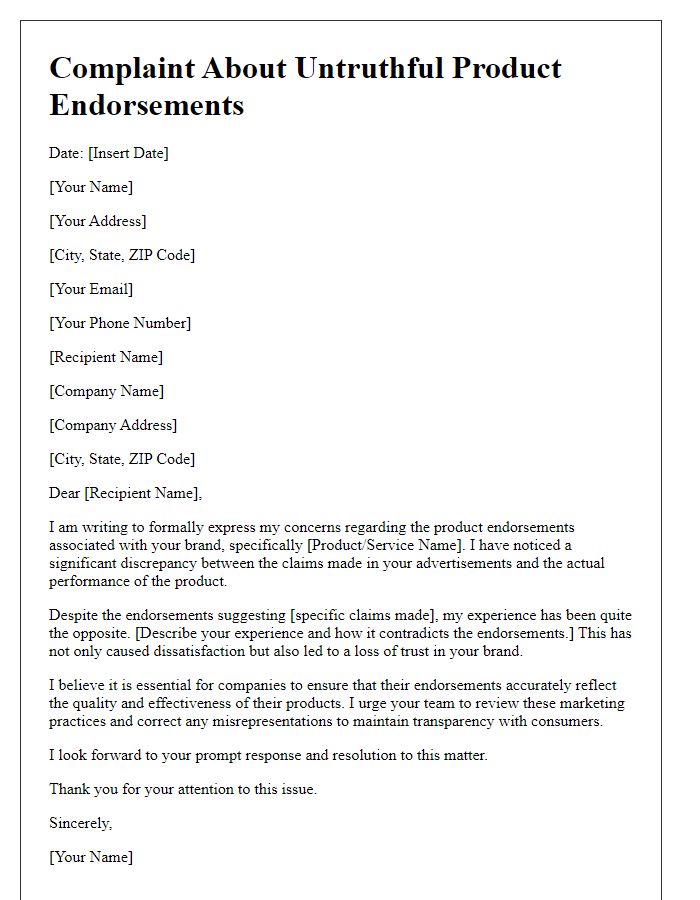
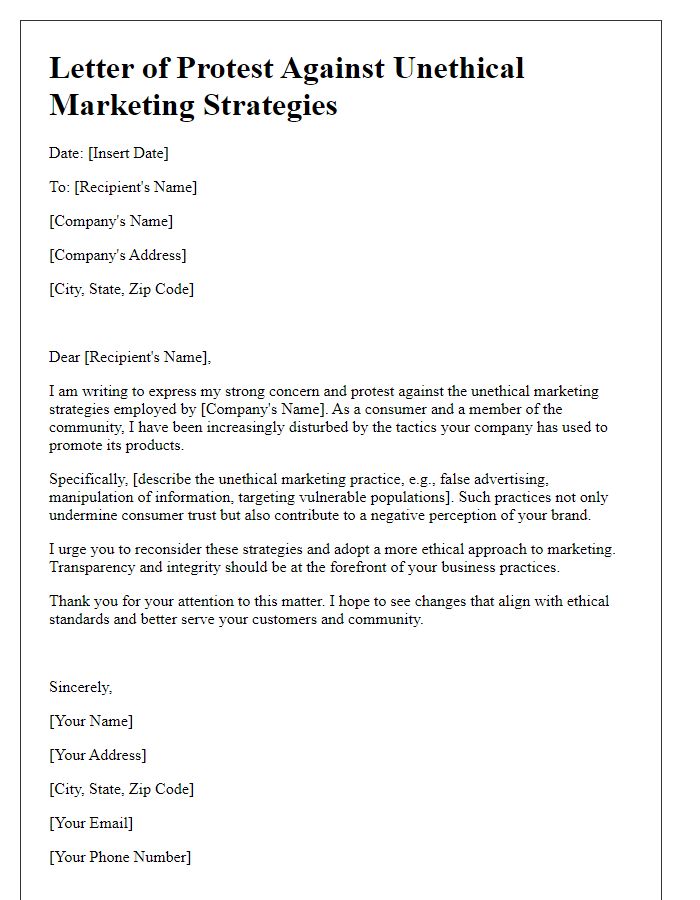
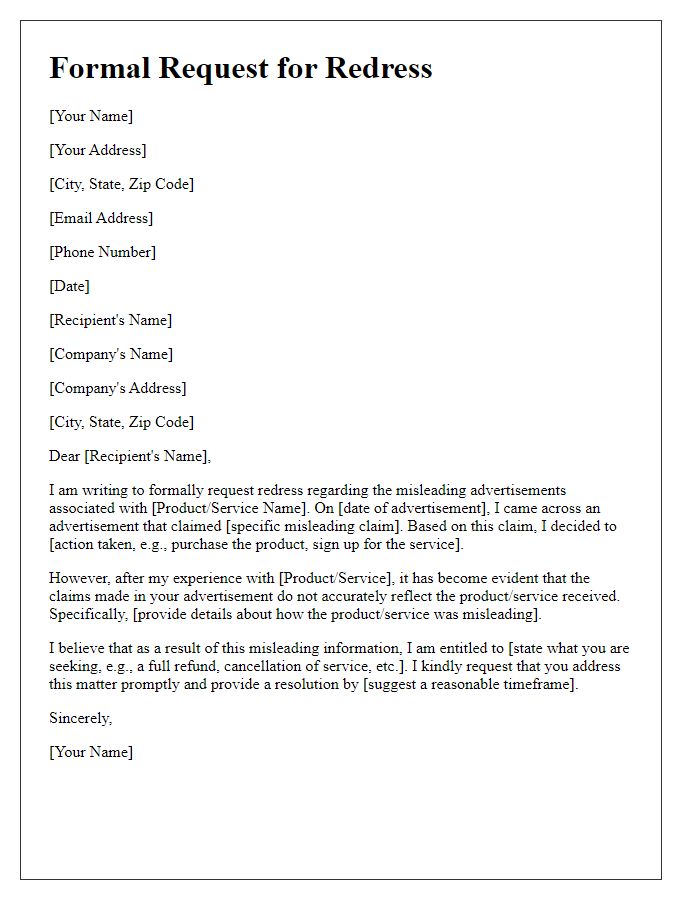


Comments